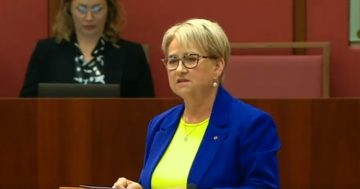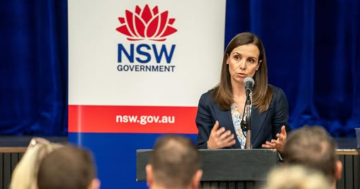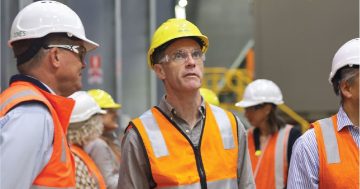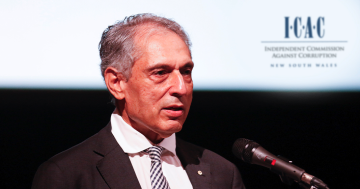
The changes for NSW were introduced prior to the release of a Senate inquiry’s final report into the PwC scandal. Photo: PwC.
A swathe of structural changes have been introduced by the NSW Government, following an inquiry that found its overreliance on consultants was “a catastrophically reckless waste of public money”.
The Upper House inquiry was sparked by a NSW auditor-general report, which discovered the former Coalition government had spent more than $1 billion on consultants between 2017 and 2022. Along with this, more than 25 per cent of fees rested with the ‘big four’ consultancy firms: KPMG, Ernst & Young, PwC and Deloitte.
Separate research conducted by the NSW Government found in 2021-22, more than 15 per cent of contracts worth $196.7 million were for “generalist work” that could be done by the public sector instead.
Greens MP Abigail Boyd chaired the inquiry committee, which was mostly composed of Labor representatives. She said in its last five years of government, the Coalition issued a consultant contract “at a rate of one engagement every hour”.
“This number still fails to include other outsourced and contracted labour performed by professional services companies, and demonstrates a catastrophically reckless waste of public money,” said Ms Boyd.
“For too long, highly paid consultants and consulting firms have enjoyed a rarefied privilege and prestige in the consciousness of the public and government decision-makers.”
Although the NSW Government is due to respond to the inquiry’s 28 recommendations by 29 August, last week Premier Chris Minns introduced a raft of changes to get the ball rolling.
“We were elected with a clear mandate to rebuild our essential services and repair the budget,” said Premier Minns. “This overreliance on consultants has directly contributed to the budget mess we inherited.
“We are focused on ensuring that we rebuild in-house capability and only use external consultants when it’s actually needed.”
One key recommendation that’s been introduced is a new unit within the Premier’s Department, which will reduce the use of consultants by redirecting public sector agencies to in-house specialist resources and build in-house capabilities for services with the highest demand.
Development of a new Core NSW Public Service Work Policy will be led by the Premier’s Department, jointly with The Cabinet Office, to set clear expectations of the types of work that agencies must be able to perform in-house.
A new group will be responsible for undertaking long-term planning for essential services delivery, especially in identifying skills shortages and workforce gaps. This group will fall under the Premier’s Department’s existing role in leading industrial relations policy for the public sector.
The Premier’s Department will also be responsible for collecting and reporting data on the public sector workforce, including the People Matter survey. Along with workforce planning, this function has been transferred from the Public Service Commission so it can focus more on ethics and integrity.
Despite these amendments to the Government Sector Employment Act 2013, the NSW Government said the Public Service Commissioner will continue fulfilling her important independent statutory functions to safeguard integrity in public sector recruitment and employment matters.
Other changes introduced under the act include:
- implementing tight controls and issuing clear instructions to agencies around the use of external consultants
- introducing additional probity measures
- legislating ‘betrayal of trust’ fines for disclosing information gained during confidential tax discussions with the government, and
- redirecting more than half a billion dollars by reducing consultants and labour hire.
Following the release of the inquiry’s report, Chartered Accountants ANZ CEO Ainslie van Onselen said they would pay close attention to any developments in the NSW Government’s response to the recommendations.
“The good standing of chartered accountants in the community must never be taken for granted,” said Ms van Onselen.
“This, and other inquiries and processes currently underway at the federal level, have provided an important opportunity to clarify the important role we play as a membership body and make our profession even stronger.
“We will continue our work to further strengthen the regulatory framework and reinforce trust in multidisciplinary firms and our profession, but we also want to avoid punishing all the hardworking accountants that are doing the right thing.”









